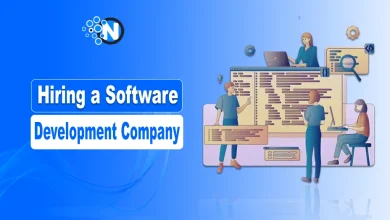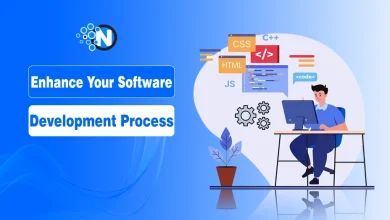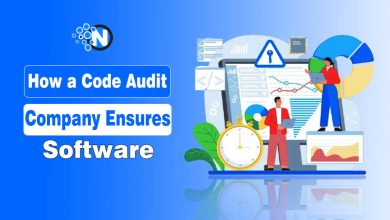Guide to Hire Fintech Developers in 2025
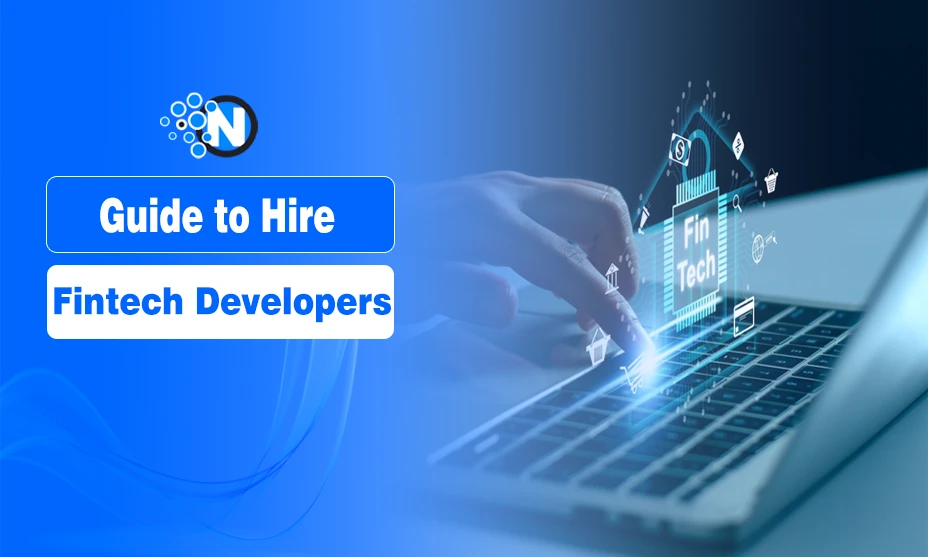
At 7:00 AM, you tap your phone to pay for coffee. By 7:01, that transaction has securely traversed a complex digital ecosystem built by talented fintech developers. Modern finance runs on code, and behind every banking app, mobile wallet, or robo-advisor is a team of specialists making it all work seamlessly. Fintech – financial technology – is redefining how we save, invest, and transact.
The real question for businesses is: who builds this future? How do companies hire fintech developers who can drive innovation while keeping sensitive data safe?
In this blog post, I will explore why fintech developers matter so much in today’s booming digital finance industry, what unique skills they bring to the table, and how to find and hire fintech developers.
Let’s start!
Why Fintech Developers Matter
Fintech developers are professionals who drive this rapidly evolving financial landscape that values speed, security, and convenience. As consumers demand instant access to online banking, mobile payments, and AI-driven advisory tools, businesses need developers who can translate complex financial processes into user-friendly digital experiences.
What makes fintech developers indispensable is their dual expertise: they not only master core programming languages and frameworks but also understand financial compliance requirements, such as KYC (Know Your Customer) and AML (Anti-Money Laundering), to ensure legal and regulatory adherence.

In addition, their proficiency in cybersecurity is paramount, as even small vulnerabilities can compromise sensitive financial information. Whether building integrations with legacy banking systems or exploring emerging technologies like blockchain, fintech developers operate in an environment where performance, scalability, and customer trust are critical.
Consequently, they act as both innovators and guardians of digital finance, enabling companies to capture new market opportunities while safeguarding user data and assets. By leveraging specialized knowledge of APIs, data analytics, and cloud infrastructures, these developers power cutting-edge fintech solutions that reshape how people save, invest, and transact in a globally competitive marketplace.
What Skills Should Fintech Developers Have?
Hiring a fintech developer means looking for a unique blend of technical prowess and financial savvy. It’s a tall order – these professionals wear many hats. Here’s an overview of the essential skills and qualities top fintech developers possess:
Technical Skills
Fintech is at the intersection of finance and cutting-edge tech, so strong fundamental engineering skills are a must. Key technical skills include:
- Proficiency in Programming Languages: Fintech developers need to be fluent in languages suited to finance. Python, Java, and C++ are popular for fintech backends (for their performance and robust libraries). JavaScript/TypeScript (with frameworks like React or Angular) is often used for secure, snappy fintech web apps. Many trading and banking systems also use C#/.NET or Scala, while mobile fintech apps might require Kotlin/Java (Android) or Swift (iOS). A great fintech dev knows more than one language and picks the right tool for each task.
- APIs and Integration: Fintech services rarely operate in isolation. Developers should be experienced in building and consuming APIs. For instance, integrating payment gateways (Stripe, PayPal), open banking APIs, or financial data feeds (like Plaid) is common. Knowledge of RESTful services and even older protocols (SOAP, FIX for trading platforms) can be crucial.
- Database and Data Handling: Financial applications deal with huge amounts of data – transaction records, user info, market data. Fintech developers should be skilled with databases (SQL and NoSQL) and data processing. They often use analytics or big data tools to detect patterns (e.g. spotting fraudulent transactions among millions).
- Cybersecurity Expertise: Security deserves extra emphasis. A fintech dev must know how to implement encryption, secure authentication (OAuth, 2FA), and prevent vulnerabilities (like injection attacks or data leakage). They stay updated on the latest security threats targeting financial apps. For example, an understanding of OWASP top 10 vulnerabilities is expected, as is experience with code audits and penetration testing.
- Blockchain and Cryptography: Not every fintech deals with crypto, but many modern fintech projects involve blockchain technology (think cryptocurrencies, smart contracts, decentralized finance). Developers with blockchain skills (e.g. Solidity for Ethereum smart contracts, or familiarity with Bitcoin’s APIs) have an edge for certain projects. Even outside of crypto, a solid grasp of cryptography principles helps in designing secure financial software.
- AI and Machine Learning: Fintech increasingly leverages AI — from fraud detection algorithms to robo-advisors that manage portfolios. Knowledge of machine learning frameworks (TensorFlow, scikit-learn) and concepts (regression, neural networks) allows developers to build intelligent financial features. For instance, a fintech developer might implement an AI model that approves loans based on risk factors or flags suspicious transactions in real-time.
- Cloud and DevOps: Many fintech apps run on the cloud (AWS, Azure, Google Cloud) for scalability and reliability. Experience with cloud architecture (microservices, serverless functions) and DevOps tools (Docker, Kubernetes, CI/CD pipelines) enables fintech developers to deploy and maintain robust infrastructure. They can ensure your app is always available and can scale on demand, which is critical if your user base suddenly grows or usage spikes.
Soft Skills and Domain Knowledge
Technical chops alone aren’t enough – fintech developers also need the right soft skills and domain understanding to excel:
- Financial Acumen: The best fintech engineers understand the context of their code. They have a grasp of financial concepts relevant to their project – whether it’s payments, lending, trading, insurance, or compliance. For example, a fintech developer working on a trading platform should understand basic market terminology (orders, liquidity, volatility), whereas one building a banking app should know what an ACH transfer or SWIFT code is. This domain knowledge helps them make smarter engineering decisions.
- Problem-Solving Mindset: The fintech industry is complex and ever-evolving. Developers often encounter novel problems (e.g., how to handle a new regulatory change in software, or how to scale to 10x users after a viral growth spike). Strong analytical and problem-solving skills are crucial. A good fintech dev approaches challenges logically and creatively, whether debugging a transaction error or designing a new feature under tight constraints.
- Attention to Detail: In finance, accuracy is everything. A small error can have outsized consequences (imagine a rounding error misplacing thousands of dollars, or a security oversight compromising user data). Fintech developers must be meticulous in their work, double-checking calculations and writing thorough unit tests. Detail-oriented developers help prevent costly mistakes and ensure reliability.
- Communication and Teamwork: Fintech projects often bring together people from tech, finance, and compliance. Developers need to communicate clearly with non-technical team members (like product managers or compliance officers) and translate requirements into code. Good fintech developers can explain technical concepts in plain language and work collaboratively in cross-functional teams. They also often interact with customers or client support when technical issues arise, so being able to discuss problems and solutions effectively is part of the job.
- Adaptability and Continuous Learning: The financial tech landscape changes rapidly. New fintech regulations can roll out yearly; new technologies (like a programming framework or a blockchain protocol) emerge just as fast. Top developers are lifelong learners – they stay current with industry trends, continuously upskill, and adapt to new tools or rules. If a new security standard becomes mandatory or a new API is released, they’re quick to get up to speed. This agility ensures your fintech product stays ahead of the curve.
- Trustworthiness and Ethics: Last but not least, because fintech developers handle sensitive financial data, integrity is key. You want developers who respect privacy and handle data ethically. Often, they might need to undergo background checks or adhere to strict data governance policies. A culture of ethics and trustworthiness is a soft skill at the team level that you should seek out (or foster) when building a fintech dev team.
In summary, a great fintech developer is a well-rounded professional – part software engineer, part financial analyst, and part security guru. When evaluating candidates, you’ll want to check for this mix of skills. In practice, that might mean a coding test for technical ability, plus interview questions about finance basics or security scenarios to gauge their domain know-how. Next, we’ll discuss different hiring models for getting such talent on board.
Hiring Models: In-House vs. Outsourcing
When you’ve decided you need fintech development expertise, the next question is how to hire. You generally have two routes: in-house hiring (bringing developers onto your own payroll) or outsourcing to external experts (which could mean hiring contractors, a development agency, or a dedicated offshore team). Each model has its pros and cons.
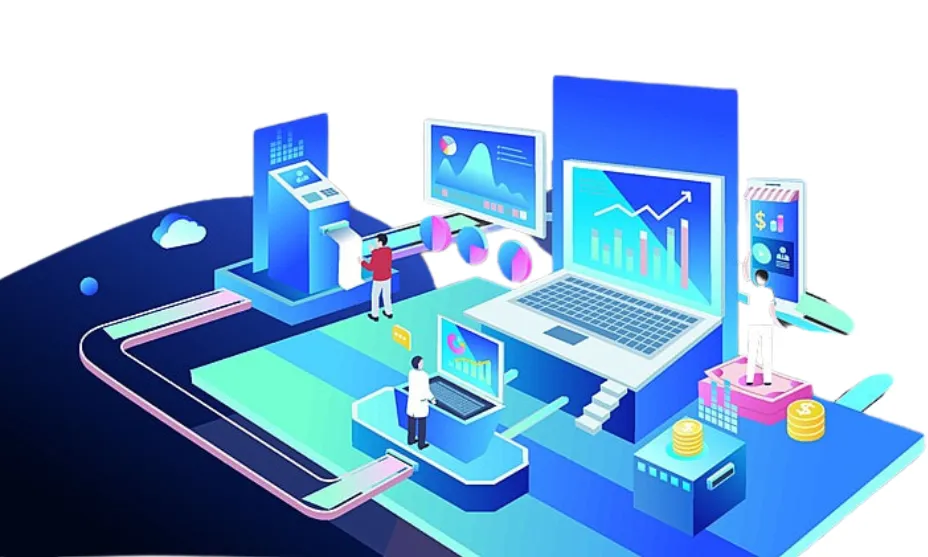
The best choice depends on your company’s needs, budget, and long-term strategy. Let’s briefly compare them:
| Aspect | In-House Hiring | Outsourcing / Offshoring |
| Talent Pool | Limited to your local/regional talent market. You might struggle to find niche fintech experts nearby, especially if you’re not in a major tech hub. | Access to a global talent pool. You can tap into fintech expertise from tech centers around the world (Silicon Valley, London, Singapore, etc.), or find specialized skills in emerging hubs. |
| Cost | Higher upfront cost. Salaries in fintech are competitive, and on top of salary you have benefits, taxes, office space, equipment, and training. (Not to mention recruiting costs.) This can strain budgets for startups or small firms. | Cost-effective options. Outsourcing can often reduce costs — for example, by hiring in regions with lower salary norms, or by engaging contractors only when needed. You save on long-term obligations like benefits and can scale the team up or down flexibly. |
| Control & Communication | Direct control over your team. In-house developers work exclusively on your projects and align with your company culture. Face-to-face (or at least same-time-zone) communication can streamline collaboration. | Less direct oversight. You’ll manage an external team through project managers or via remote communication. Time zone differences or cultural differences can pose challenges, but many firms mitigate this with good processes and overlap hours. |
| Domain Knowledge | In-house teams can build up deep product and company knowledge over time. They’re immersed in your business, which can be great for long-term projects that require continuity and a tight feedback loop with users. | Outsourced teams often have broad experience from multiple projects, which can be a plus (bringing fresh ideas), but initially they’ll need time to learn your specific domain and standards. Long-term outsourcing partnerships, however, can accumulate product knowledge too. |
| Speed to Hire | Slower hiring process. Recruiting full-time employees can take months – you have to advertise, interview multiple candidates, negotiate offers, and then onboard. In a fast-moving fintech market, this might be a bottleneck. | Quick ramp-up. Outsourcing companies or freelance platforms can provide ready-to-go developers much faster. Need an expert blockchain developer next month? An outsourcing partner might assign one next week. This model shines when you have urgent needs or short-term projects. |
| Scalability | Scaling an in-house team means significant effort – new hires, onboarding, and infrastructure. Similarly, downsizing is painful (layoffs, reassigning roles). | Flexible scaling. You can easily ramp the team size up or down by adjusting your contract with the vendor or hiring more/fewer contractors. This flexibility is ideal for project-based work or uncertain workloads. |
| Intellectual Property & Security | Since in-house devs are your employees, it’s often easier to enforce strict IP protection and data security policies internally. They’re bound by employment contracts and company oversight. | When outsourcing, you must ensure robust NDAs and security measures are in place. Vet reputable partners who have strong data protection standards. Many outsourcing firms specialize in fintech and carry certifications (like ISO security standards) to give clients peace of mind. |
In reality, many companies use a hybrid approach. For example, you might keep a core team in-house for critical systems and proprietary knowledge, while outsourcing specific modules or using external consultants for specialized skills (like a one-time blockchain integration or a UX redesign for your app).
Cost Considerations
How much will it cost to hire fintech developers? The answer varies widely based on geography, experience, and hiring model. Here, we provide a global overview of salary expectations and other costs to keep in mind:
The cost of hiring fintech developers varies significantly depending on geography, skill level, and hiring model. In the United States, developers command some of the highest salaries (around $129,000 on average), with additional costs for benefits and taxes. Western Europe offers slightly lower but still substantial salary ranges, while Eastern Europe and parts of Asia provide more budget-friendly options without sacrificing talent. Latin America is also emerging as a favorable region for cost-effective, bilingual hires.
Beyond base salaries, there are other financial factors. Recruitment expenses — including agency fees and interview time — can add up. Onboarding and training are crucial for integrating new talent effectively but take time and resources, and infrastructure costs (like equipment and software licenses) should not be overlooked.
Finally, retention is a key consideration: turnover in the competitive fintech space can incur additional expenses through bonuses, raises, and employee development programs. Balancing these elements is essential for a sustainable, high-performing fintech development team.
How to Hire the Best Fintech Developers
Begin by clearly defining your project requirements and the fintech-specific skills (e.g., payment APIs, security protocols) you need. Next, decide whether an in-house or outsourced model fits your budget and timeline, and craft a compelling job description that highlights unique challenges to attract top talent.
Spread your search through multiple channels, professional networks, fintech forums, job boards, and recruiter partnerships, to find the widest pool of candidates. In interviews, assess both technical competencies (coding tests, domain knowledge) and soft skills (communication, teamwork, problem-solving). Finally, offer a competitive package swiftly, consider a paid trial project to gauge real-world performance, and ensure you’ve chosen someone who not only codes well but also aligns with your fintech vision.
By following these steps, you increase your odds of hiring fintech developers who are not only technically qualified but also the right fit for your organization. It’s a thorough process, but assembling an excellent development team is like building a strong foundation for your fintech product. Next, we’ll discuss why partnering with us can simplify many of these steps and ensure you get top-tier talent.
Conclusion
The decision to hire fintech developers could be the most crucial investment in your journey. With skilled fintech developers on your team, you gain the ability to innovate faster, solve complex financial challenges, and deliver the secure, seamless experiences that today’s users demand. Hiring the best isn’t always easy, but it’s absolutely worth it. Remember to focus on the skills that matter – both technical and domain-specific – and choose a hiring model that aligns with your strategy and resources.
The fintech revolution is here now! New opportunities (and competitors) are emerging every day. Equip your venture with developers who understand the industry. When you hire fintech developers who are talented, trusted, and aligned with your vision, you’re not just filling a position – you’re empowering your company to lead in the fintech era.

